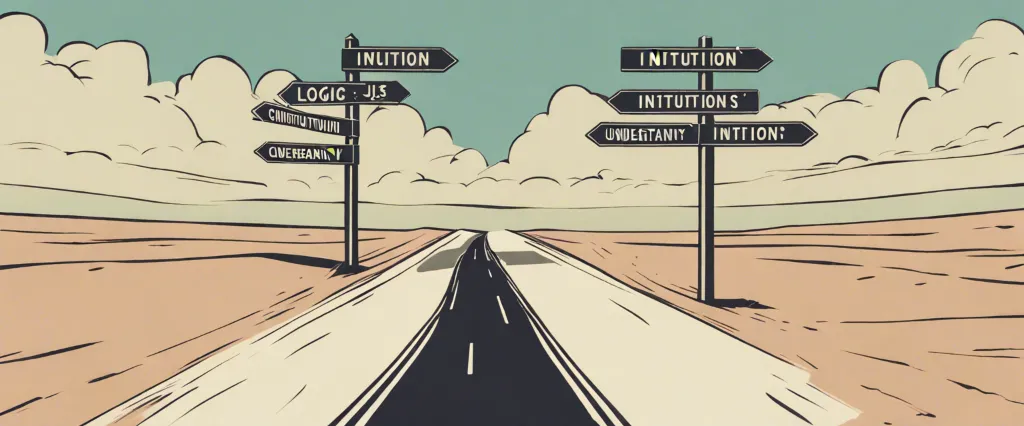——Practicing the Power of Now by Eckhart Tolle & The Compound Effect by Darren Hardy

In the realm of self-improvement literature, countless books have emerged as beacons of guidance and wisdom, offering readers insight into unlocking their true potential and navigating the complexities of life. Among these literary treasures, two standout works have captivated audiences across the globe due to their profound impact: “Practicing the Power of Now” by Eckhart Tolle and “The Compound Effect” by Darren Hardy. While these two books originate from different corners of the self-help genre, they share a common goal – to empower individuals to create positive change and find fulfillment.
Tolle’s “Practicing the Power of Now” delves into the realms of mindfulness and present moment awareness, urging readers to transcend their incessant thoughts and connect with the transformative power of the present. On the other hand, Hardy’s “The Compound Effect” champions the power of small, daily actions compounded over time, encouraging readers to harness the principles of consistency and disciplined approach for achieving remarkable success. Although these works adopt distinctive methodologies, they both offer valuable insights, presenting readers with practical tools to foster personal growth and navigate the complexities of life.
Through a comprehensive comparative study of these two remarkable books, we aim to explore the nuanced similarities and differences in their approaches, uncovering the potential for synergy that can be harnessed by readers seeking profound personal development. By examining key themes, core principles, and practical techniques outlined within “Practicing the Power of Now” and “The Compound Effect,” we shall embark on a journey to unearth the invaluable wisdom offered by these two seminal works, enriching our understanding of how to live a purposeful and empowered life.
Allow yourself to be transported into the realm of introspection and personal transformation as we embark on this comparative exploration of Tolle’s “Practicing the Power of Now” and Hardy’s “The Compound Effect.” Together, we shall uncover the profound lessons hidden within the pages of these literary masterpieces, propelling us towards a future filled with renewed purpose, clarity, and lasting happiness.
Brief Summary of Two Books
Practicing the Power of Now by Eckhart Tolle
Practicing the Power of Now is a spiritual guidebook written by Eckhart Tolle. The book emphasizes the importance of living in the present moment and experiencing life without the burden of past regrets or future anxieties. Tolle introduces the concept of the “pain-body,” which is the accumulation of past emotional pain that hinders individuals from fully embracing the present. By focusing on the present moment, Tolle suggests that individuals can develop a deeper sense of self-awareness and find inner peace. The book offers practical exercises and techniques to help readers cultivate mindfulness and awaken to their true essence. Through the teachings of mindfulness, acceptance, and surrender, Tolle encourages readers to practice being present and embrace life fully.
The Compound Effect by Darren Hardy
“The Compound Effect” by Darren Hardy is a self-help book that explores the power of small, consistent actions in creating significant long-term results. The author emphasizes the idea that success is not solely determined by big leaps or overnight transformations, but rather by the cumulative effect of small choices and habits over time.
Hardy explains that each decision we make, every habit we build, and every action we take contributes to the overall trajectory of our lives. He argues that by making small positive changes consistently, individuals can experience dramatic improvements in their personal and professional lives.
The book offers various strategies and insights on how to create positive habits, manage time effectively, and develop a mindset of perseverance and discipline. Hardy emphasizes the importance of setting goals, tracking progress, and staying committed to the process, even when results may seem slow or insignificant.
Throughout the book, the author provides real-life examples and success stories to illustrate the compound effect in action. He also includes practical exercises and action steps that readers can implement to start making positive changes immediately.
In essence, “The Compound Effect” encourages readers to shift their focus from the immediate and flashy to the small, consistent actions that accumulate over time. By harnessing the power of the compound effect, individuals can overcome challenges, achieve personal and professional goals, and ultimately lead a more fulfilling and successful life.
Comparison between Two Books

Similarities in Self-help
In both “The Power of Now” by Eckhart Tolle and “The Compound Effect” by Darren Hardy, the authors emphasize the importance of self-help and personal development in order to live a fulfilling and successful life. These books share several similarities in their approach to self-help, which can be summarized as follows:
1. Mindfulness and Present Moment Awareness: Both Tolle and Hardy emphasize the significance of being fully present in the current moment. They stress that dwelling on the past or constantly worrying about the future can hinder personal growth and fulfillment. By cultivating mindfulness and being fully immersed in the present, individuals can make better decisions and take action to achieve their goals.
2. The Power of Choice: Both authors emphasize that personal development and self-help require conscious choices. Tolle highlights the importance of choosing one’s thoughts and reactions, while Hardy emphasizes the cumulative effects of small choices made consistently over time. Both books stress that individuals have the power to change their lives through the choices they make each day.
3. Taking Responsibility: Both authors encourage readers to take responsibility for their lives and not to be victims of external circumstances. Tolle emphasizes that true empowerment lies in accepting the present situation and taking responsibility for one’s thoughts and actions. Similarly, Hardy encourages readers to take ownership of their choices, habits, and actions, as these ultimately shape their outcomes.
4. Persistence and Discipline: Both books stress the importance of persistence and discipline in personal development. Tolle emphasizes the need for ongoing practice and commitment to living in the present moment, while Hardy emphasizes the compounding effects of consistent action. Both authors highlight the fact that self-help requires dedicated effort and a willingness to persevere even when faced with challenges.
5. The Role of Habits: Both authors recognize the role of habits in personal development. Tolle encourages readers to break free from negative thought patterns and unconscious behaviors to create new, positive habits. Similarly, Hardy focuses on the concept of the compound effect, explaining how small, consistent habits over time can lead to significant positive change.
Overall, “The Power of Now” and “The Compound Effect” both emphasize the transformative power of self-help, mindfulness, conscious choices, personal responsibility, persistence, and the development of positive habits. These books serve as practical guides for individuals seeking personal transformation and improved well-being.
Divergences in Self-help
Practicing the Power of Now by Eckhart Tolle and The Compound Effect by Darren Hardy are both popular self-help books that aim to help individuals improve their lives. However, there are significant divergences in their approaches and underlying philosophies.
1. Focus on the Present Moment vs. Long-term Thinking: Practicing the Power of Now emphasizes the importance of being fully present in the moment and detaching oneself from past regrets or future anxieties. Tolle argues that true happiness is only achieved by living in the present and letting go of attachment to outcomes. On the other hand, The Compound Effect primarily encourages readers to make small, consistent actions over time to create large-scale change in their lives. Hardy emphasizes the cumulative effect of small choices and advocates for long-term thinking and planning.
2. Spiritual Perspective vs. Practical Approach: Eckhart Tolle’s book is heavily rooted in spirituality and mindfulness. He delves into the nature of consciousness, ego, and the concept of surrendering to the present moment. Tolle offers a more abstract and philosophical approach to self-help. In contrast, The Compound Effect by Darren Hardy takes a more practical and action-oriented approach. Hardy focuses on specific habits, routines, and strategies that individuals can implement to improve their personal and professional lives.
3. Emphasis on Personal Growth vs. External Success: Practicing the Power of Now emphasizes the importance of inner transformation, personal growth, and finding inner peace. Tolle encourages readers to explore their consciousness and spirituality. On the other hand, The Compound Effect is primarily geared towards achieving external success, such as financial prosperity and career advancement. It provides strategies for improving productivity, time management, and goal-setting to drive success in various areas of life.
4. Writing Style and Accessibility: Tolle’s writing style in Practicing the Power of Now can be described as more reflective and contemplative, using metaphors and philosophical concepts that require deeper reflection. Some readers may find it abstract or challenging to grasp initially. In contrast, Darren Hardy adopts a more straightforward and direct writing style in The Compound Effect, making it easier for readers to understand and apply his practical advice.
In conclusion, Practicing the Power of Now and The Compound Effect differ significantly in their approaches to self-help. While Tolle focuses on spiritual growth and the present moment, Hardy offers tangible strategies for long-term success. The divergence in their underlying philosophies and writing styles allows readers to choose the approach that resonates best with their personal preferences and goals.

Conclusion
Both “Practicing the Power of Now” by Eckhart Tolle and “The Compound Effect” by Darren Hardy offer valuable insights and lessons, so determining which one is more worthy of reading depends on your personal interests and goals.
“Practicing the Power of Now” delves into the concept of living in the present moment and finding true happiness and fulfillment. It explores mindfulness and offers practical techniques for incorporating this philosophy into your daily life. If you are seeking a deeper understanding of yourself and your relationship with the present moment, this book may be a great choice.
On the other hand, “The Compound Effect” focuses on how small actions and decisions, compounded over time, can lead to significant changes and achievements. This book highlights the power of consistency, personal responsibility, and a growth mindset. If you are looking for practical strategies to improve your habits, productivity, and overall success, this book could be more suitable.
Consider your personal goals and interests when deciding which book to read first. If you feel drawn to exploring mindfulness and living in the present moment, go for “Practicing the Power of Now.” If you are eager to develop habits and implement strategies for long-term success, start with “The Compound Effect.” Ultimately, both books offer valuable insights for personal growth and will likely enhance your understanding of yourself and the world around you.


